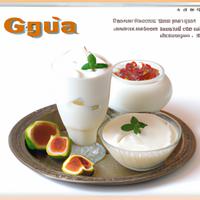
1 serving (150 grams) contains 100 calories, 5.0 grams of protein, 3.0 grams of fat, and 12.0 grams of carbohydrates.

Log this food in SnapCalorie

Nutrition Information
Calories |
157.7 | ||
|---|---|---|---|
% Daily Value* |
|||
| Total Fat | 4.7 g | 6% | |
| Saturated Fat | 3.2 g | 16% | |
| Polyunsaturated Fat | 0 g | ||
| Cholesterol | 15.8 mg | 5% | |
| Sodium | 78.9 mg | 3% | |
| Total Carbohydrates | 18.9 g | 6% | |
| Dietary Fiber | 0 g | 0% | |
| Sugars | 15.8 g | ||
| protein | 7.9 g | 15% | |
| Vitamin D | 63.1 mcg | 315% | |
| Calcium | 236.6 mg | 18% | |
| Iron | 0.2 mg | 1% | |
| Potassium | 315.5 mg | 6% | |
* Percent Daily Values are based on a 2,000 calorie diet. Your daily values may be higher or lower depending on your calorie needs.
Food Attributes
Source of Calories
About Jugurtti
Jugurtti is a creamy, yogurt-based dish originating from Mediterranean and Middle Eastern cuisines, celebrated for its versatility and nutritional benefits. Made primarily from fermented milk, it is rich in probiotics that support gut health, as well as protein, calcium, and essential vitamins like B12 and riboflavin. Jugurtti can be enjoyed plain, sweetened with fruits and honey, or seasoned with savory spices like garlic and mint. Its high protein content makes it a satisfying option for snacks or meals, while its low fat and calorie options cater to health-conscious diets. However, variations with added sugar or high-fat content may reduce its overall healthfulness. Jugurtti is often used in sauces, dips, desserts, or enjoyed as a standalone food, making it a popular and nutritious staple in many households around the world.



